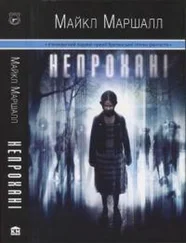Майкл Смит - The Lonely Dead
Здесь есть возможность читать онлайн «Майкл Смит - The Lonely Dead» весь текст электронной книги совершенно бесплатно (целиком полную версию без сокращений). В некоторых случаях можно слушать аудио, скачать через торрент в формате fb2 и присутствует краткое содержание. Год выпуска: 2004, Жанр: Альтернативная история, Детективная фантастика, Социально-психологическая фантастика, на английском языке. Описание произведения, (предисловие) а так же отзывы посетителей доступны на портале библиотеки ЛибКат.
- Название:The Lonely Dead
- Автор:
- Жанр:
- Год:2004
- ISBN:нет данных
- Рейтинг книги:4 / 5. Голосов: 1
-
Избранное:Добавить в избранное
- Отзывы:
-
Ваша оценка:
- 80
- 1
- 2
- 3
- 4
- 5
The Lonely Dead: краткое содержание, описание и аннотация
Предлагаем к чтению аннотацию, описание, краткое содержание или предисловие (зависит от того, что написал сам автор книги «The Lonely Dead»). Если вы не нашли необходимую информацию о книге — напишите в комментариях, мы постараемся отыскать её.
The Lonely Dead — читать онлайн бесплатно полную книгу (весь текст) целиком
Ниже представлен текст книги, разбитый по страницам. Система сохранения места последней прочитанной страницы, позволяет с удобством читать онлайн бесплатно книгу «The Lonely Dead», без необходимости каждый раз заново искать на чём Вы остановились. Поставьте закладку, и сможете в любой момент перейти на страницу, на которой закончили чтение.
Интервал:
Закладка:
Ten minutes on the web told me there were no department stores by that name still in operation in the US, or at least none who'd made their existence known to the internet. So I had to let scientific detection methods go hang, and work back from the conclusion.
I tracked down a selection of 'San Francisco of Yesteryear' sites and spent a while dredging through evocations of the city's days of yore. My eyeballs were beginning to melt by the time I found a reference to a Saturday morning ritual for one little girl, now grown old, whose long-dead mother used to take her to look at fancy haberdashery in a store called Harrington's. They couldn't afford any of it. They just went to look.
I flipped back to the freeze frame. I had misread the sign. The angle wasn't good, and sun was hazing out the film in a way that would have been difficult to predict when it was being shot. A quick check said there was no Harrington's still in business either, on the West Coast or anywhere else. Further web-mining with the new spelling established that the store had once sat on Fenwick Street, and been a big deal in its day. Big enough of a deal, probably, that my father might have assumed it would be there forever.
So. San Francisco was confirmed. My brother was evidently capable of telling the truth.
— «» — «» — «»—
Fenwick was ten minutes' walk from the hotel. The streets were crowded, flocks of end-of-the-afternoon strollers and shoppers casting long shadows on clean grey pavements. Though the road had been widened, and just about every ground-level aspect of the architecture had been altered, it wasn't hard to see I was in the right area.
When I drew opposite to the huge building that had once housed Harrington's, I ground to a halt. People cruised around me like leaves skirting a rock in a steady stream. The old store front had been split into two, and now held a Gap and a vast make-up emporium from which women of all ages were emerging with expressions of glee and very, very small bags in each hand. The floors above appeared home to the lairs of attorneys.
I found my eyes drawn to the sidewalk in front of my feet. I didn't remember having trodden this precise spot, but I had. I had walked here holding my mother's hand. My father had filmed us. They were gone but the place was still here, and me along with it. I was older now than they had been then, but at the time I had been about the same age as a toddler I saw being pushed past me in a stroller, a small being so different from me that I found it hard to believe I had once been one.
Time is strange.
'You in a fucking coma, man?'
I turned round to see a shithead in a suit standing behind me, unable or unwilling to do as everyone else had and step around me. I was about to explain how stupid this was but then realized I didn't want to get into another fight, even a verbal one.
I apologized, moved aside. 'Asshole,' he said.
A woman's voice said, 'Oh grow up.'
I turned and saw it was the woman with the stroller, who had stopped to deliver this advice to the other man.
He glared at her, then stormed off up the street. The woman winked at me and went her own way. In the trivial way cities sometimes do to you, I felt I had been taken inside.
I glanced across once more at the corpse of Harrington's, then set off up around the other side of the square and headed west. I had a print-out of several frames from the final part of this section of the video, which showed the area where the child had been abandoned. I didn't have much hope of finding the actual spot, or even the street. But Chinatown lay in that direction, and somewhere in there was a big bowl of food with my name on it.
Sometimes you have to keep your goals to a manageable size.
— «» — «» — «»—
Next morning I was on the phone at five after nine. By ten thirty all I had established was that you didn't get information out of social services in a hurry. After a while I had spent so long pushing buttons in menu systems that I began to be afraid I might eventually be put back through to myself, which I knew would freak me out. So I got onto the street and walked over there instead.
Within five minutes I wished I'd stuck with the phone. There's nothing like the waiting room of any office of the government or its allies to remind you how lucky you are. You enter a non-place, non-time. You sit on battered chairs in murky blues and greens that nobody ever names as their favourite colour. You stare at signs that have no bearing on you, non-specific communiqu?s from the land that punctuation forgot. You wait until the waiting loses all sense of direction or purpose, until you become like a stone deposited in a field millennia ago by a careless glacier. You are here. This is all you have ever known. In the meantime you are stripped of any sense of individuality, of the idea that you might be different from anyone else in the room except by virtue of your particular problem; and so you become that problem, defensively, accepting it as identity, until it swells and suppurates and becomes all you are. As a species we'll tolerate being close to others, but not so close, and not in those circumstances and when we feel so small: we become rows of dry, fretting eyes, hating everyone around us and sincerely wishing our neighbour dead so we can move up one place in the line.
Or maybe that's just me.
I spent a long time waiting before I could even delineate my basic needs to someone. It then took us a while to get around the fact I didn't have a proper address, and for him to accept the Armada's details instead. I explained I had a brother who I thought had been taken into care in San Francisco in the mid to late 1960s, probably around 1967; that I believed his first name to be Paul, that I was trying to trace him, and that I had no other information whatsoever except that he might have been found wearing a sweater with his name stitched into it. The man wrote down what I said but the looks he gave me suggested it was going to be a long day. Finally he handed me a number, and I was released back into the milling, coughing herd of problems, psychoses and whines.
Two hundred thousand years later, my number came up. I was invited down a long corridor and into a room in the far back of the floor, where a middle-aged black woman was sitting behind a desk covered in paper. A sign said she was called Mrs Muriel Dupree. The wall behind her was covered with posters in which one word in three was underlined and confidentiality was usually guaranteed.
'I can't help you,' she said, before I'd even sat down.
I sat down anyway. 'Why?'
'It's too long ago, that's why.' She referred to a piece of paper in front of her. 'Says here it's about a brother, and you think it was around 1967. That's before my time. It was also before a lot of other big things happened. Those, for a start.' She nodded towards a computer so old I wouldn't trust it to hold my laptop's coat. 'Only about twenty years ago all this stuff started going on computer, and then we had a bad fire in 1982 that took out the tapes and files in the basement, so we lost most of the information prior to that date anyhow. Even if something was written down about it the old-fashioned way, and it wasn't burned, it wouldn't have been a whole lot and you'd have a better chance of finding God than finding it now. I don't mean that personally. You may know Him already, in which case, good for you.'
She read the disappointment in my face, and shrugged. 'Things were different then. Today no one gets 'put up for adoption': the mother makes an adoption plan, there's legally binding contact arrangements and everybody gets that a blank canvas isn't the best thing for the child, that she or he needs to own the information about their own past, da da da. But back then it was 'Okay, you been fostered or adopted or whatever. Welcome to your new life. Don't look back, because there ain't nothing happy there to be found.' People would change the kids' names, birthdays, whatever. You know how they say the expression 'Put up for adoption' came about?'
Читать дальшеИнтервал:
Закладка:
Похожие книги на «The Lonely Dead»
Представляем Вашему вниманию похожие книги на «The Lonely Dead» списком для выбора. Мы отобрали схожую по названию и смыслу литературу в надежде предоставить читателям больше вариантов отыскать новые, интересные, ещё непрочитанные произведения.
Обсуждение, отзывы о книге «The Lonely Dead» и просто собственные мнения читателей. Оставьте ваши комментарии, напишите, что Вы думаете о произведении, его смысле или главных героях. Укажите что конкретно понравилось, а что нет, и почему Вы так считаете.








![Майкл Смит - Ханна Грин и ее невыносимо обыденное существование [litres]](/books/408571/majkl-smit-hanna-grin-i-ee-nevynosimo-obydennoe-su-thumb.webp)
![Майкл Смит - Те, кто приходят из темноты [litres]](/books/412959/majkl-smit-te-kto-prihodyat-iz-temnoty-litres-thumb.webp)


